7 Alternative Search Engines to Google (Tried & Tested)
To answer this question, I used a few popular alternative search engines for a day. Then I went through my daily work to see if I noticed anything significant.
I also judged each search engine on its commitment to protecting user data and privacy.
Here are 7 search alternatives to Google.
- 1. StartPage
- 2. Qwant
- 3. DuckDuckGo
- 4. Ecosia
- 5. Swisscows
- 6. Bing
- 7. Yahoo
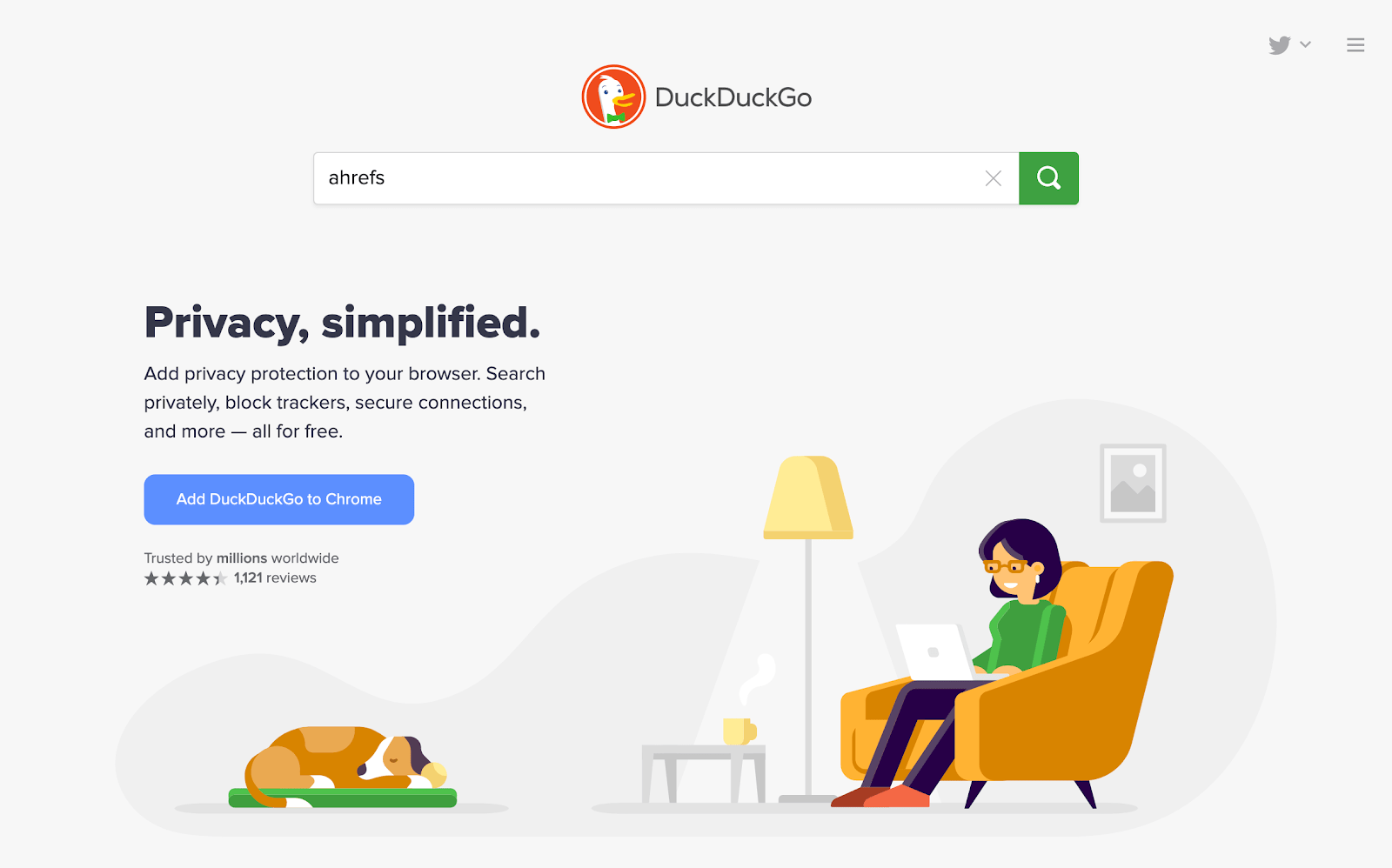
Possibly the most popular private search engine, DuckDuckGo (DDG) has positioned itself as “anti-Google” since its launch in 2008.
DuckDuckGo sources its results from over 400 different places, including its own crawler (DuckDuckBot), crowdsourced sites (e.g., Wikipedia), and partners (e.g., Bing).
This might be an unpopular opinion, but I thought DuckDuckGo’s search results were good but not exceptional.
For instance, I was recently browsing Facebook and saw a video of a man bailing water away from a flooded street. I recognized the background of the video as Venice (Italy). Wanting to know what happened, I searched for “venice” in DuckDuckGo but didn’t see any relevant results. Yet, a similar search in Google showed results about flooding in the city.
How private is it?
According to DuckDuckGo, it does not store personally identifiable information like IP addresses. It also doesn’t use tracking cookies. However, it does save searches, though it claims to do it in a non-identifiable way.
That said, DDG is based in the U.S., which means it’s part of the Five Eyes intelligence alliance. Privacy-oriented users may also point to the fact that the U.S. repeatedly conducts mass surveillance programs and collects data from various Internet companies (e.g., PRISM and MUSCULAR).
DuckDuckGo’s “Bangs” feature takes you directly to search results on other sites. For example, typing “!w” and a keyword (e.g., !w singapore) takes you directly to Wikipedia’s page for Singapore.
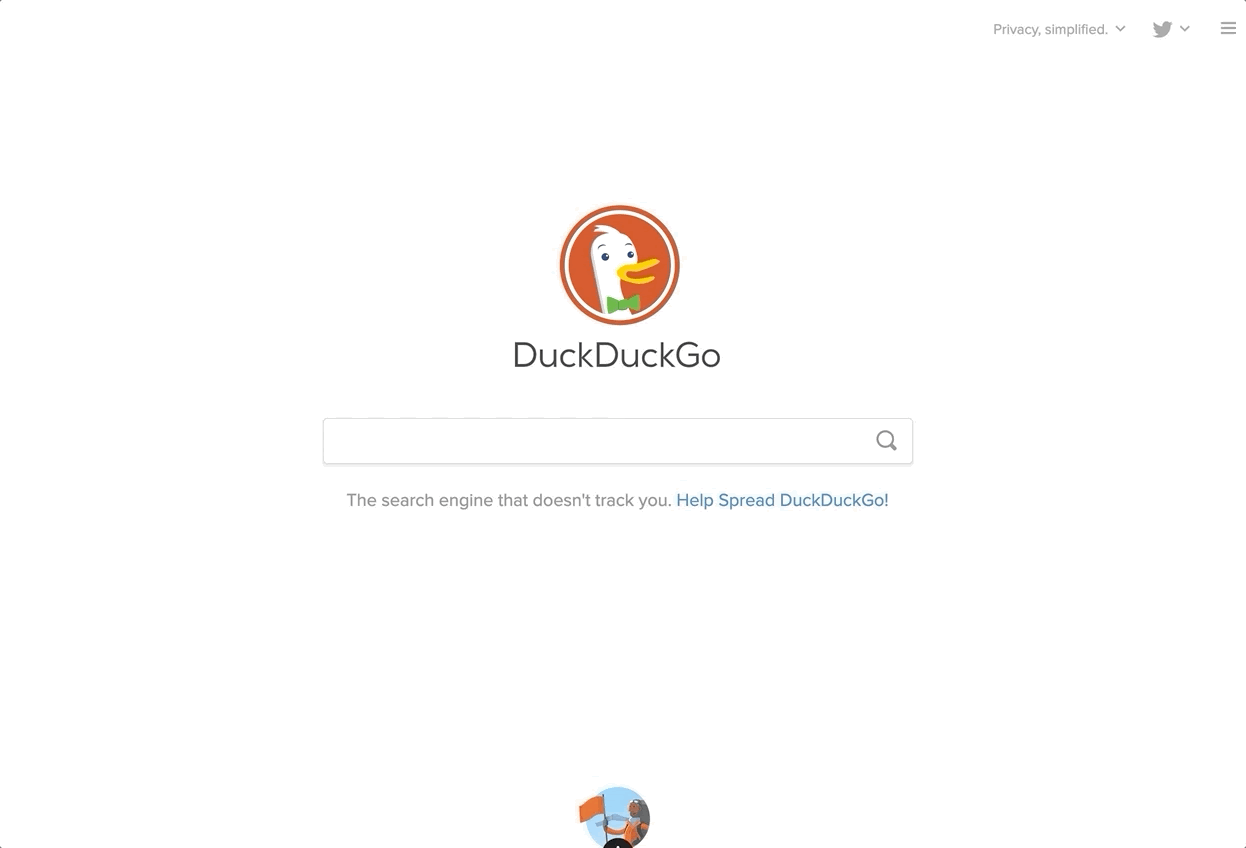
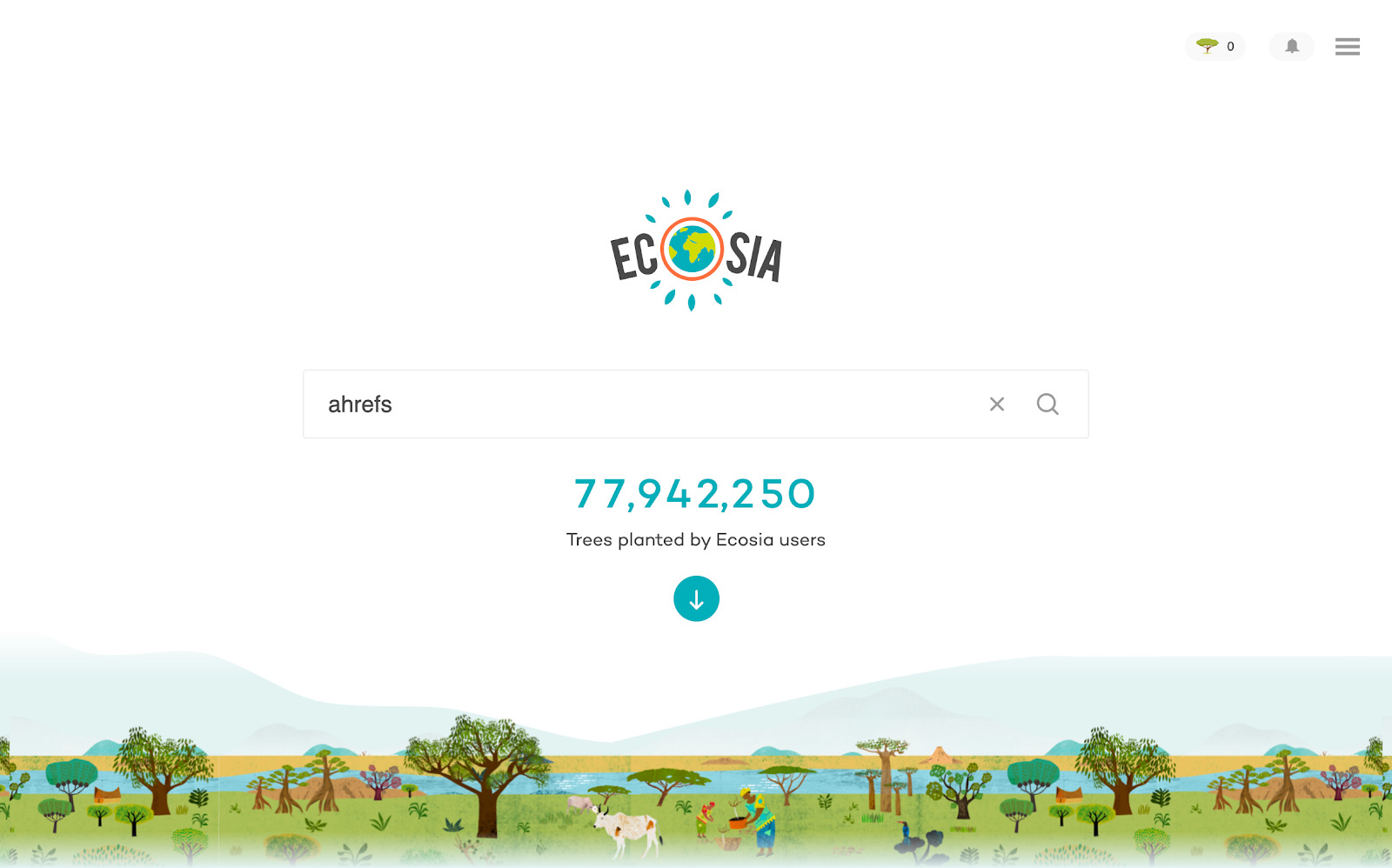
It may not be evident to you as an end-user, but every Google search creates carbon dioxide. According to Quartz, the search engine is responsible for ~40% of the Internet’s carbon footprint.
The company behind Ecosia wants to counteract this. It donates 80% of its profits to tree-planting projects, roughly equating to one tree planted for every 50 searches. It’s also built a solar plant so it can run servers on clean power.
Ecosia’s search results are powered by Bing and enhanced by its own algorithms. I found results from Ecosia to be good enough most of the time.
How private is it?
Ecosia claims to be a private search engine. However, if you read their privacy policy, you’ll find that they’re not that privacy-oriented.
Firstly, they collect search data. This data, according to them, is used for improving their web services. Only after seven days is all personal information (e.g., IP addresses) deleted.
Additionally, since Bing powers their search results, they share some details with them to answer your search request. Here’s what Ecosia says:
[…] when you do a search on Ecosia we forward the following information to our partner, Bing: IP address, user agent string, search term, and some settings like your country and language setting.Additionally, by default Ecosia sets a Bing-specific “Client ID” parameter to improve the quality of your search results. If your browser has “Do Not Track” enabled, we disable the “Client ID” automatically. You can also choose to disable this feature by modifying your user settings.”
If you’re concerned about privacy, Ecosia is probably not the best choice.
Hit the resolution dropdown on the videos tab to filter for video results of varying quality.

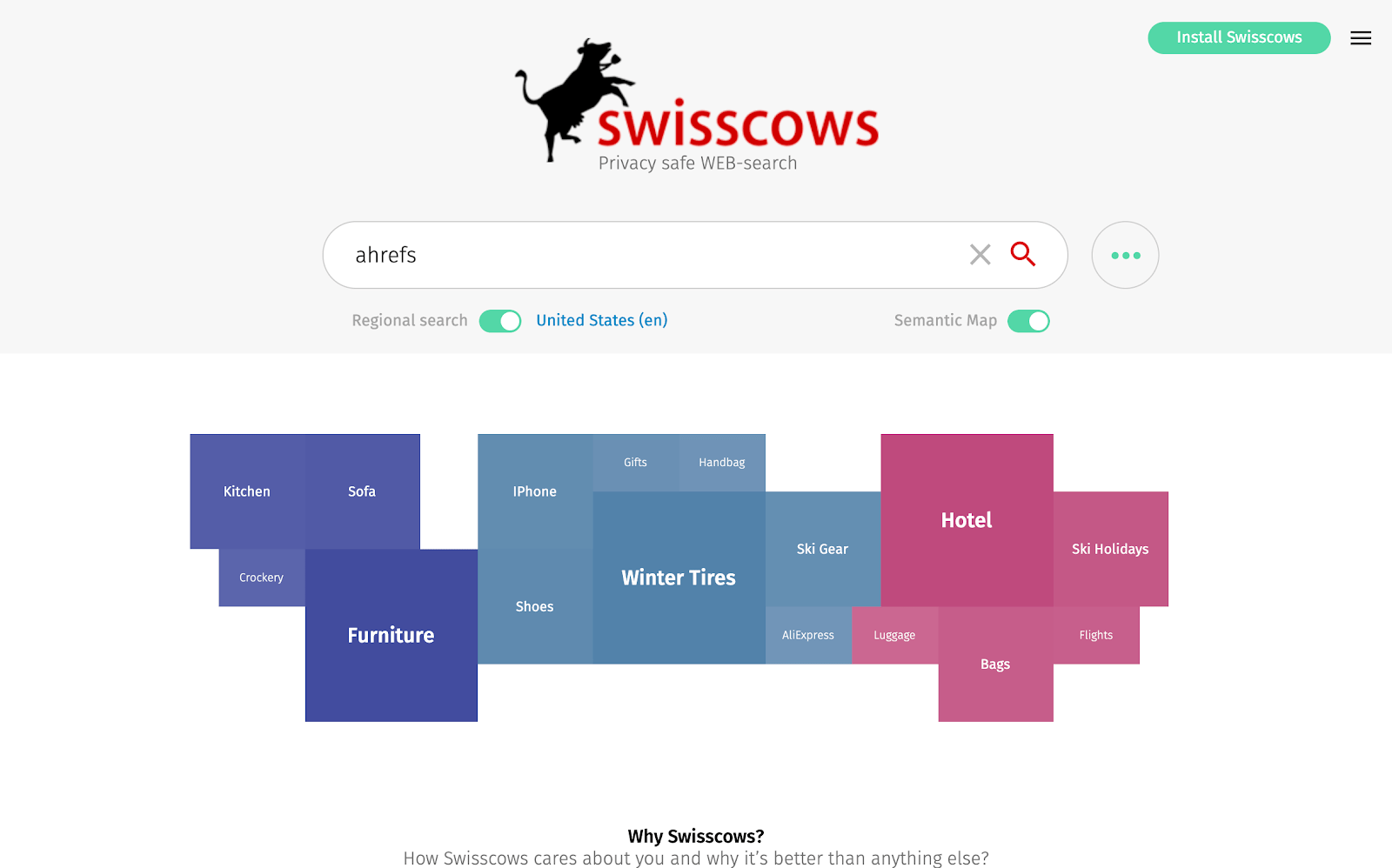
As the name suggests, Swisscows is a search engine based in Switzerland. It has its own index for German queries but uses Bing results for other languages.
Swisscows bills itself as “family-friendly.” It automatically filters out all violent and pornographic search results. This feature is enforced. There’s no way to change it in the settings.
While I felt that Swisscows’ search results could be better, it made the list thanks to its strong privacy commitment.
How private is it?
Swisscows does not collect any data about its users. It doesn’t use any tracking cookies or geo-targeting.
If you’re concerned about the partnership with Bing, you will be relieved to know it routes queries through a firewall to strip out personal identifiers.
You’ll also be happy to know that Switzerland is not part of the Five, Nine, or Fourteen Eyes intelligence alliance. It does, however, have a Mutual Legal Assistance Treaty with the U.S.
Swisscows offers “semantic maps” to help you further refine your searches.
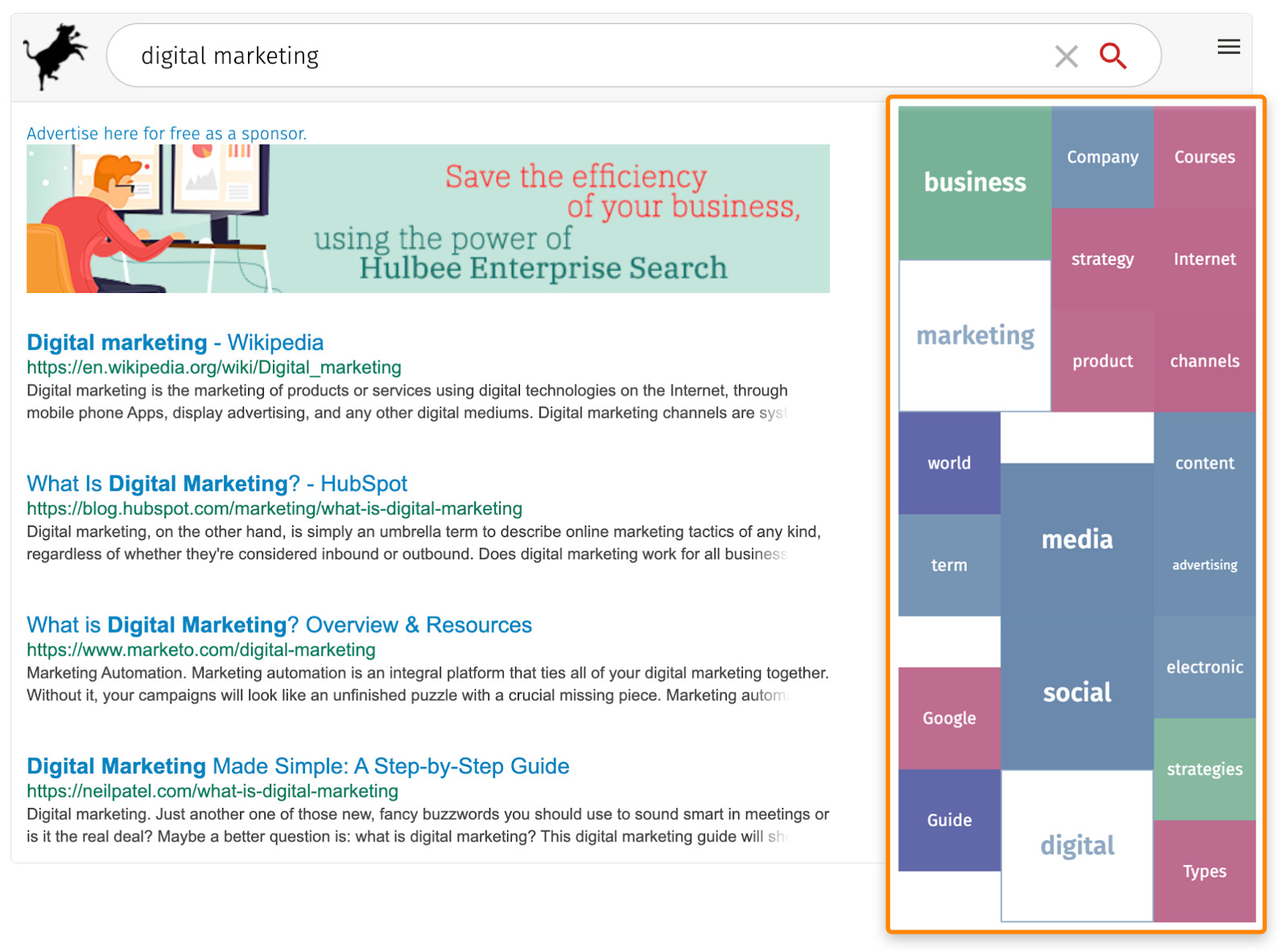

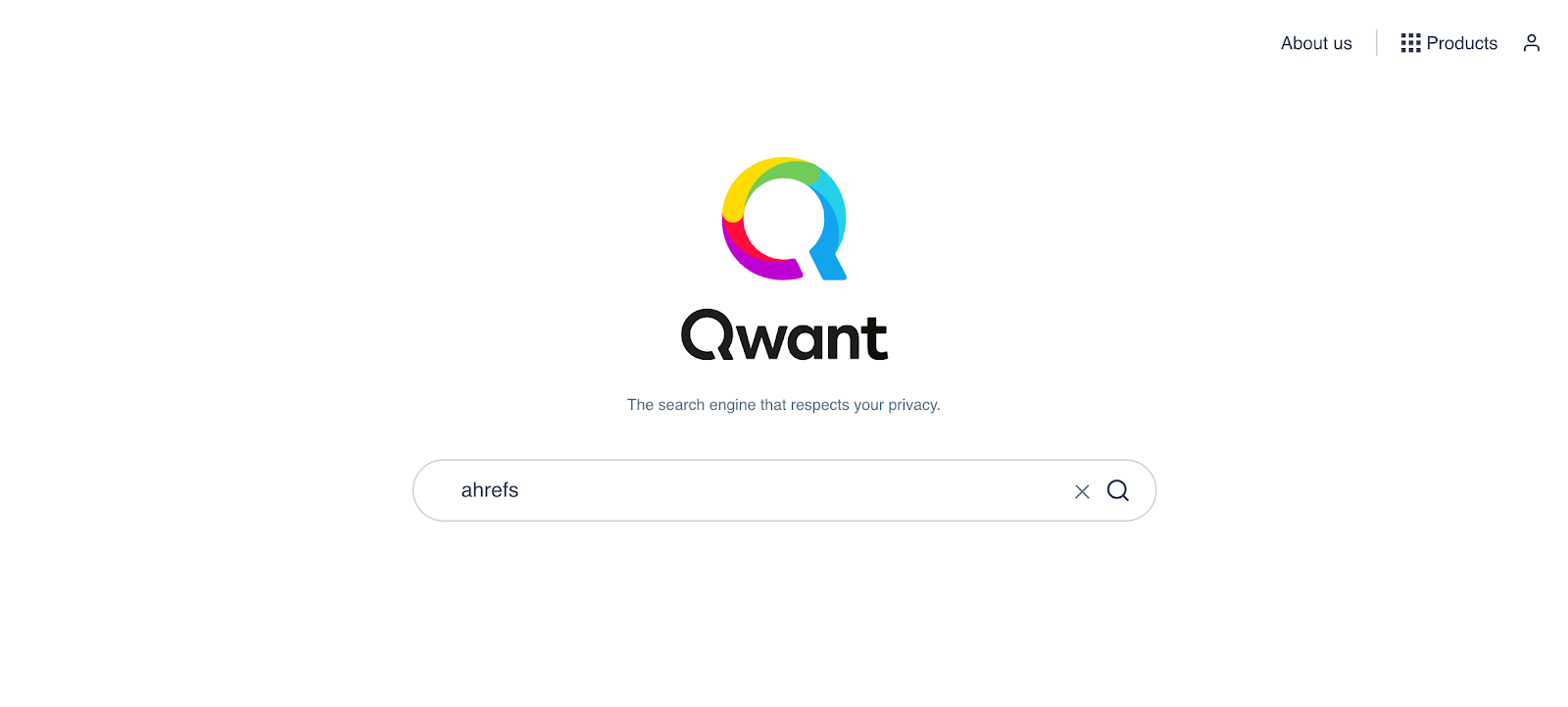
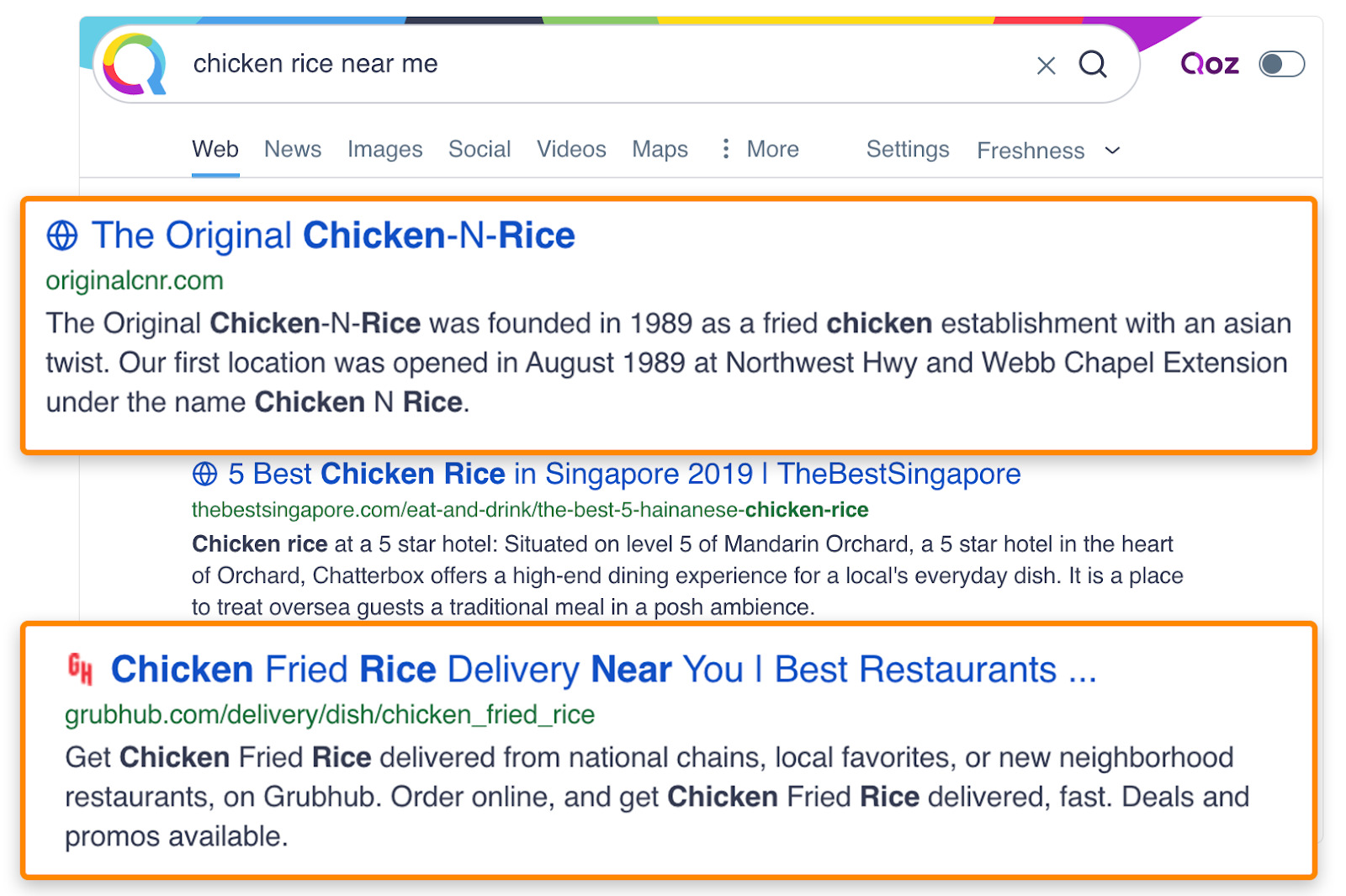
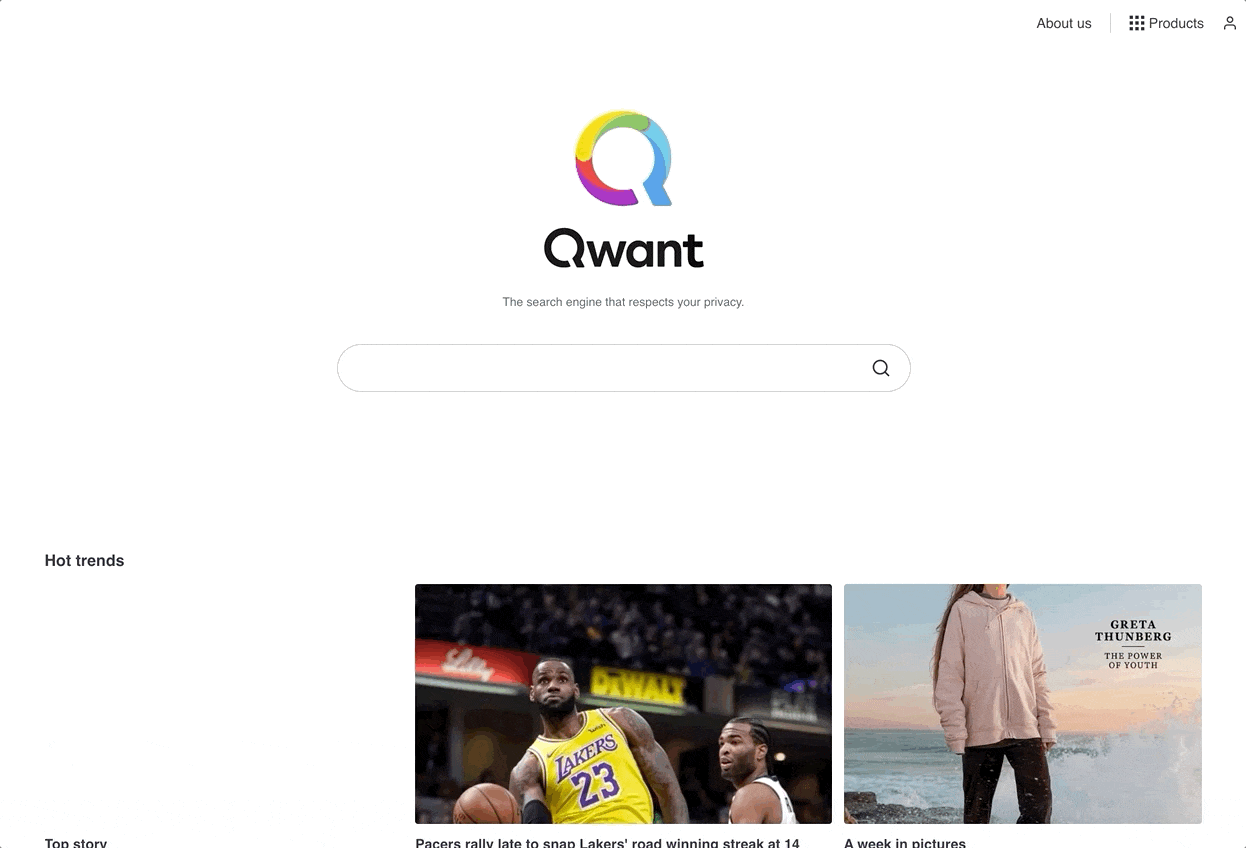
Comments
Post a Comment